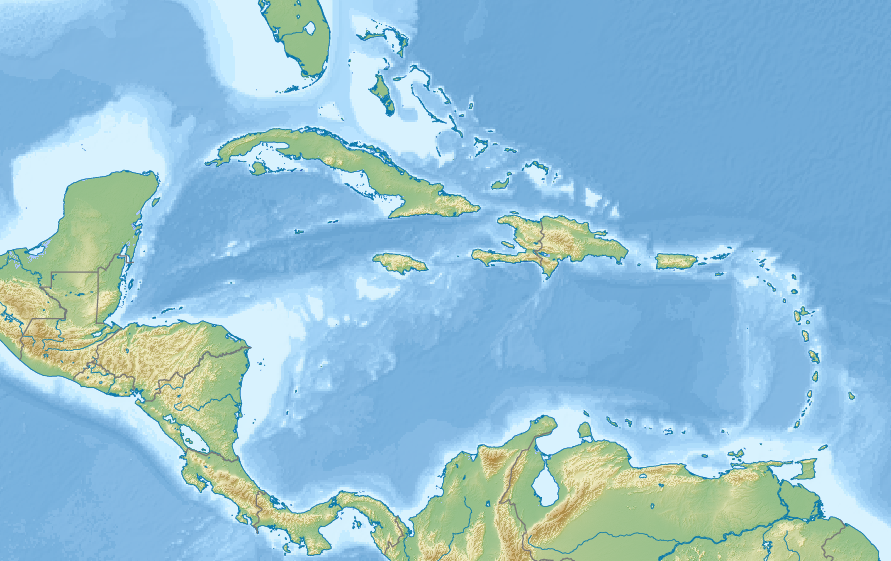US and Japan shouldn’t sit idle as China tackles the Caribbean
[ad_1]
~~

~
Small island states face unique development challenges due to their small population and weak economic base, which makes them particularly vulnerable to exogenous shocks.
This has been the case for the small island nations of the Pacific. Not surprisingly, China’s growing political and economic presence, primarily through “development†aid, has also proven to be a substantially negative influence in the Caribbean.

China’s extension of arms
For the small Caribbean islands, one of the most visible, extensive and costly forms of engagement with China has come in the form of Beijing funding a significant portion of their infrastructure projects. China’s growing economic presence in the Caribbean is easily associated with such ventures, which reveal a series of questionable procurement processes and the looming reality of insurmountable debt.
The economies of these small countries have been weakened by mixed internal and exogenous conditions and the withdrawal of economic support from traditional multinational agencies. Beijing’s offers of flexible repayment terms therefore appeared inviting, creating a permeable entry point for a wider and deeper Chinese presence in the Caribbean.
By 2008, Caribbean countries accepted more than US $ 50 billion in investments and concessional loans from China. These funds were made available to the region primarily for infrastructure development projects, including highways and bridges, railways, housing, energy, mines, airports and seaports. . As global development assistance from traditional partners dried up, Caribbean island countries easily grasped Beijing’s offer for easy financing.
Notably, from 2005 to 2018, the China Development Bank and the China Export-Import Bank (two of China’s largest state-owned banks) were the largest lenders in Latin America and the Caribbean. Most of these investments have taken the form of concessional government-to-government loans with interest rates well below market levels. (Some were as low as 2%). These lucrative terms made them attractive to economically struggling and indebted small Caribbean island countries.
However, Chinese funding offers a regional avenue for its hegemonic conceptions in state art. Recall the statement by former US Secretary of State Rex Tillerson before his visit to the region in February 2018, when he observed that China had used “an art of economic governance to draw the region into its orbit …[but] At what price?”

Countering Beijing’s heavy hand
According to China Global Investment Tracker DatabaseBeijing’s investments in Latin America and the Caribbean amounted to US $ 130 billion from 2005 to 2019, with energy projects accounting for 56% of all investment and metals / mining at 28%.
Economic engagement with the region is marred by the failure of many Chinese companies to adhere to international labor and environmental safety standards. Many smaller, developing and underdeveloped countries have accumulated unsustainable levels of debt to the PRC and have become singularly dependent on commodity exports to China.
The Trump administration viewed China’s engagement with greater suspicion, and National Security Strategy 2017 said that “China is seeking to put the region in its orbit through state-led investments and loans.
Further, former US Secretary of State Mike Pompeo said, “When China does business … it often injects corrosive capital into the economic bloodstream, bringing corruption to life and eroding good governance.”
In the contemporary context, March 2021 Small and Less Populated Island Economies Initiative (SALPIE) proposed by the Biden administration aims to increase cooperation and engagement with small island states in the Caribbean, Pacific and North Atlantic in order to balance China’s increased influence.
The SALPIE initiative takes up several legislative plans introduced in the 116e Congress to counter the Chinese presence in the Western Hemisphere. For example, S. 4528 / HR 8716 introduced in August and October 2020 took steps to increase the competitiveness of the United States in the Caribbean and promote regional security and digital security. In addition, HR 7703, introduced in July 2020, authorized the financing of the Caribbean Basin Security Initiative Act in an effort to counter the malicious influence of authoritarian regimes, including China.
Japan balancing
The difficult global economic environment for small island nations and other fragile economies often tends to become a harsh precursor and reminder of the mercantilist policies of the colonial era. In this case, nations such as China repeatedly use their economies to increase their state power at the expense of vulnerable countries.
In this reference, the chart of trade, investment and cooperation between Japan and the Caribbean inspires not only bilateral potential, but also future trade potential with Asia. Tokyo-Caribbean ties encompass trade and foreign direct investment in a range of industries, a cooperative agenda between governments and significant migratory flows.
In addition, these contacts bring considerable mutual benefits, denying the common impression that Caribbean integration with Asia is only about trade in commodities for manufacturing. Current relations also invite Japan and the Caribbean countries to further explore new avenues of mutually beneficial trade that encourage an even wider distribution of development gains.
Checking China’s influence
China’s foreign influence activities have the potential to undermine the sovereignty and independence of the politico-economic systems of targeted states, including those in the Caribbean.
It should always be borne in mind that Beijing’s economic commitment sets the stage for its subsequent political influence activities. These are what Xi Jinping called the CCP’s “magic weaponsâ€.
The United States, Japan and other leading democratic actors must control China’s predatory engagement with the Caribbean. The small island nations of the Caribbean are another example, especially as China strengthens its economic and diplomatic ties, which reflect the growing forays of Beijing’s “hard-toothed soft power†and its “influence operations†in the country. whole world.
RELATED:
Author: Dr Monika Chansoria
Dr Monika Chansoria is a senior researcher at the Japanese Institute of International Affairs in Tokyo. The views expressed here are those of the author and do not necessarily reflect the policy or position of the JIIA or any other organization with which the author is affiliated. She tweets @MonikaChansoria. Find more articles from Dr Chansoria here at JAPAN Forward.
[ad_2]

